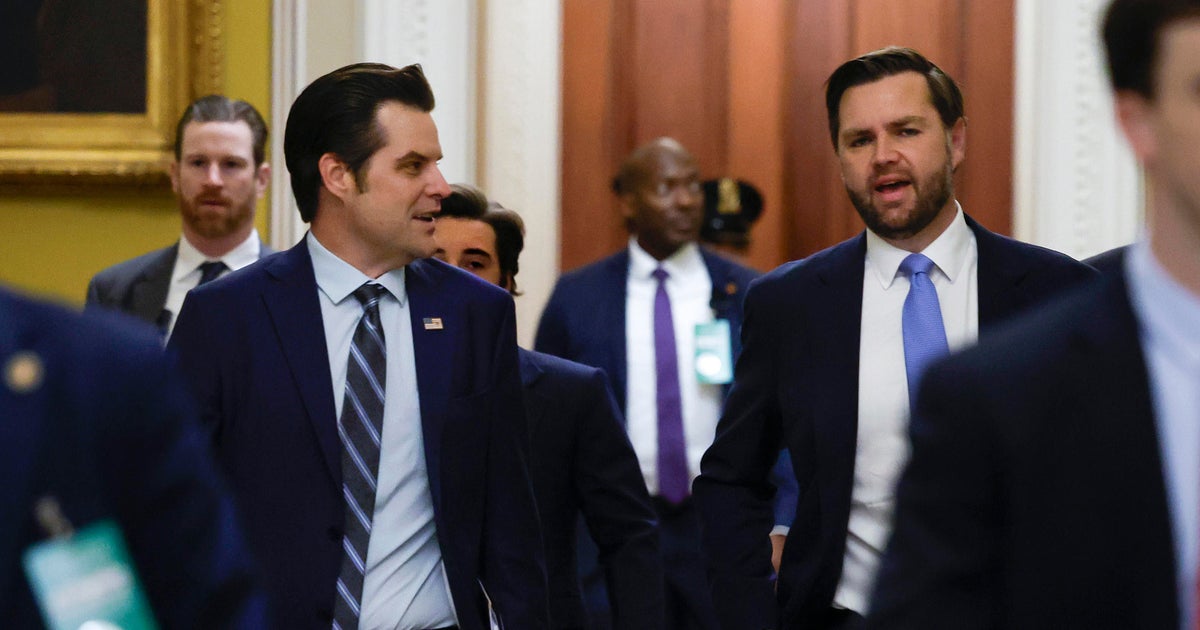Can Pompeo nail the coffin closed on the Iran nuclear deal?
United Nations — The U.N. was set for a tough conversation on Thursday. The United States was expected to face stiff resistance to a bid to use the Iran nuclear deal that the Trump administration abandoned to get harsh international sanctions on Tehran re-imposed.
The administration has made a flagship issue of scrapping the 2015 Iran nuclear agreement. Since withdrawing from the deal two years ago, the White House has put the Islamic Republic under "maximum pressure" with a raft of unilateral sanctions, aimed at forcing it to halt its nuclear program and support of terror groups, and to slow its ballistic missile development.
On Thursday, Secretary of State Mike Pompeo was visiting U.N. Headquarters to try to start the process of having international sanctions against Iran re-imposed over the regime's non-compliance — a process that's outlined in the terms of the agreement. But given the Trump administration's 2018 withdrawal from the agreement, Russia, China and even some of America's European allies who helped craft the deal say that leaves Washington with no right to invoke it now.
"Secretary Pompeo will travel to New York City on August 20-21 to notify the United Nations Security Council that the United States will initiate the process to restore U.N. sanctions on Iran," the State Department confirmed Wednesday.
"Thirty days after Secretary Pompeo's notification, a range of U.N. sanctions will be restored, including the requirement that Iran suspend all enrichment-related activities. This will also extend the 13-year arms embargo on Iran," State Department spokesperson Morgan Ortagus declared.
In reality, that's no foregone conclusion — at least not that it will happen so efficiently.
Can the U.S. complain?
The move by the Trump administration to try to get the pre-2015 U.N. sanctions against Iran to "snapback" into place comes less than a week after the U.S. suffered an embarrassing defeat at the U.N. Security Council on a Resolution that would have extended a U.N. arms embargo on Iran set to expire in October.
Now the administration, with Pompeo in the lead, is asserting the U.S. right to file an official complaint against Iran for violating the 2015 deal, which would start the process of restoring the U.N. sanctions lifted as part of the agreement.
But as it did last week, the U.S. will encounter stiff resistance in the Security Council. Russia and China insist the U.S. can't present resolutions on a deal it's no longer part of. Moscow has called Washington's stance "absurd."
"We don't take it that the U.S. has either legal right or reason to initiate this thing," Russia's Ambassador to the U.N. Vassily Nebenzia told reporters. "… Of course we will challenge it."
A spokesman for Iran's mission to the U.N., Alireza Miryousefi, told CBS News the U.S. has no right to call for the sanctions to be restored, calling the move "manifestly illegal" and "illegitimate."
Meanwhile, Israel backed the U.S. "Reimposing the U.N. sanctions on Iran is a critical step to curbing Iranian aggression, which threatens the entire world," Israeli Ambassador Gilad Erdan said.
The Trump administration's says that while it withdrew from the nuclear agreement, it's still party to the Security Council Resolution that implemented the deal, and that gives it the right to file the complaint.
How "snapback" works
The U.S. wants to initiate the "snapback," a clause the Obama administration insisted on when the deal was negotiated, but it's a convoluted process.
There are two international legal documents involved: The nuclear deal itself, formally known as the Joint Comprehensive Plan of Action (JCPOA), and the Security Council Resolution that put it into effect, "UNSCR 2231."
At the U.N. on Thursday, Pompeo said Resolution 2231, "gave every one of the participant states the right to execute snapback unconditionally."
Restoring the pre-2015 sanctions requires several steps: First, one party to the deal must file a complaint alleging "non-performance" by another, which Pompeo delivered Thursday. Then the relief the deal gave to Iran (freedom from sanctions) is un-done - unless there's action by the Security Council, in the form of a new resolution, to keep the relief in place and the deal alive.
Any Security Council resolution to keep the deal in place can be vetoed, however, by a permanent member, and the U.S. is one.
There's no formal procedure laid out in the nuclear deal to determine whether a country that has withdrawn still has the right to file a complaint.
While legal challenges by U.S. adversaries and votes to try and determine U.S. rights may well delay the process, given the U.S.' veto power on the Security Council and the terms of the nuclear deal, once Pompeo files the complaint, the likelihood is that sanctions will end up snapping back, and the deal will crumble.
So the U.S. may emerge as the technical winner, but look very lonely on the world stage.
"A rough ride"
France, Germany and the U.K. have expressed their displeasure with Iran's noncompliance and they triggered the nuclear deal's dispute mechanism earlier this year, but they stressed the action was taken in a bid to preserve the 2015 deal, not kill it.
Over the weekend, former U.S. Ambassador to the U.N. John Bolton, a long-time critic of the nuclear deal, said in an opinion piece in the Wall Street Journal that, "the agreement's backers argue that Washington, having withdrawn from the deal, has no standing to invoke its provisions. They're right."
Richard Gowan, U.N. Director for the International Crisis Group (ICG) think-tank, told CBS News the U.S. would "put a lot of pressure on other council members to accept they have the right to trigger snapback," but he said the U.S. delegation knew it was, "in for a rough ride… and they won't get much support in the Security Council."
Regardless of support, the U.S. notification on Thursday will move the "maximum pressure" campaign forward, and America's foes have limited means to stop it.





